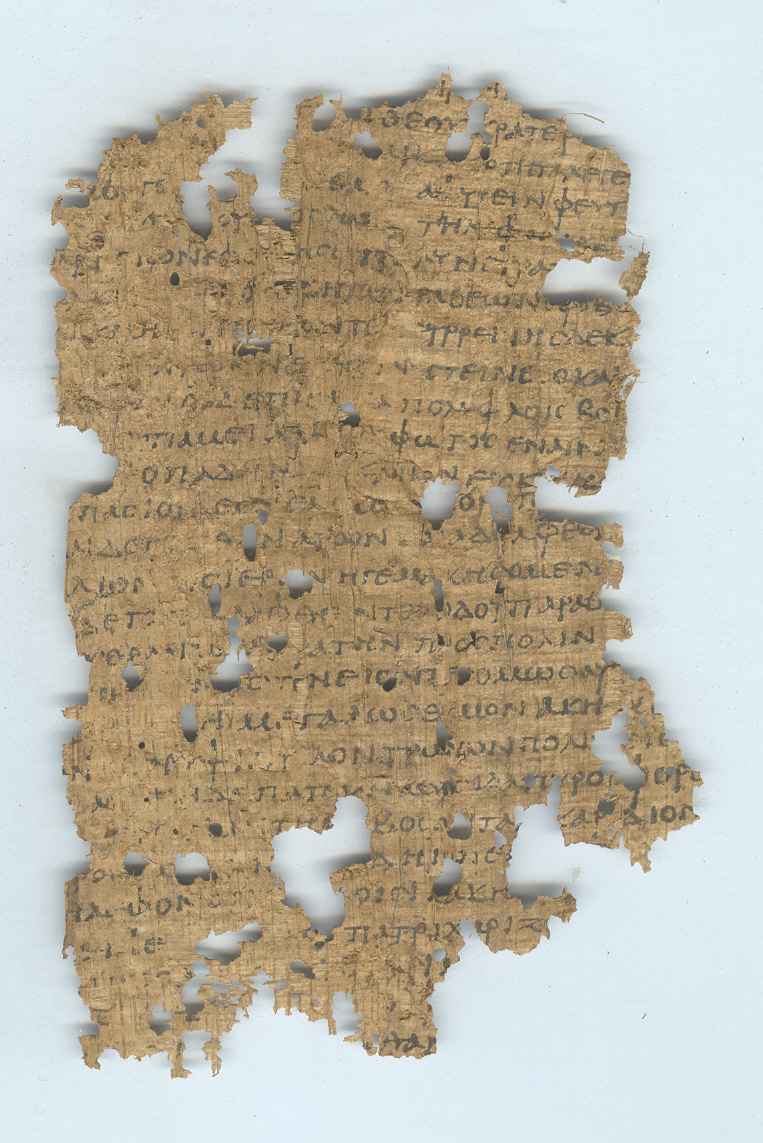
According to an article in the Washington Post, there has been a major breakthrough in the reading of the Oxyrhynchus Papyri and the Herculaneum scrolls, two of the great treasure troves of ancient literature. It’s work for physicists and learned and careful classical scholars, and therefore way over my head, but we will all benefit from the knowledge and the art that those scientists and scholars are dis-covering.










TGP, a scholar, says, of the Oxyrhynchus Papyri and the Herculaneum scrolls, two objects I’ve lived almost 5 decades being completely unaware of:
“It’s the work for physicists and learned and careful classical scholars, and therefore way over my head, but we will all benefit from the knowledge and the art that those scientists and scholars are dis-covering.”
I’d appreciate Tom’s justifying that claim. It’s not so much that I disagree with it as that I have trouble understanding what could pass as evidence in support of it. If we don’t know what’s on these scrolls, how can we be confident that we’ll benefit from finding out? Surely there are many things we today commit to paper (or now disc) that, 5,000 years from now won’t be worth remembering (my laundry list, for example)…
Curiously,
Ross (philistine) Levatter
It’s true that it’s not an easy matter to value the unknown. That’s always true. Yet we manage to do it. The number of previously unreadable manuscripts from Herculaneum is quite large and the Oxyrhynchus rubbish dump was enormous. If the scholars going through that material were to discover one heretofore lost play by Sophocles it would be a great find. Even a portion of one of the lost constitutions written by Aristotle would be a treasure. The discovery of his Constitution of Athens on the back of a papyrus manuscript in 1890 added greatly to our understanding of political life in Athens, as also of classical political theory. I can’t put my finger on the number, but I recall that there are mentions in classical sources of dozens of other constitutions of Greek city states that were assembled by Aristotle and his school. Wouldn’t you like to know how they described the polities of Sparta, Corinth, Delos, Thebes, etc., etc?
First of all, even the equivalent of laundry lists may be of value to helping us understand life in the ancient world, but other than that, they _have_ already discovered lost plays by the classic tragedians, so there’s apparently “real” stuff here as well. If they find any of Aristotle’s dialogues, or the second book of “Poetics,” it would be amazingly significant.
I’m hoping for scientific and philosophical works by Epicurus. He was quite prolific, but all we have of this seminal thinker are a few epistles and a smattering of aphorisms. An Epicurean philosopher is said to be one of the major finds, and you can be sure I’ll be happy to have more Philodemus around! Epicureanism is a fascinating doctrine for many reasons, including its evolutionism, its spontaneous order theory, its quasi-atheism, its practical approach to ethics (both personal and social), and even its influence on a very different set of ideas, Christianity. Were we to learn more about Epicureanism from these finds, I’d say the emprise would be worthwhile indeed.
this piece of source might be a political note or it could even be a personal letter